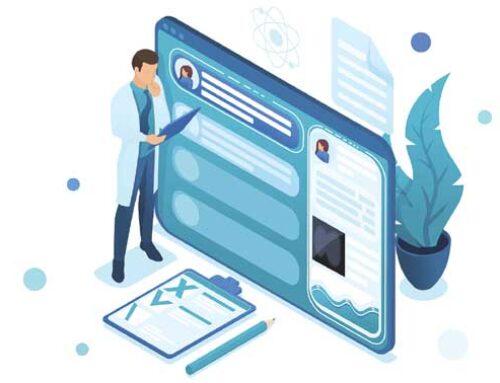 by Ann McNary, JD
by Ann McNary, JD
Senior Risk Manager, PRMS, Inc., Arlington, Virginia
Innov Clin Neurosci. 2014;11(3–4):43–45
This ongoing column is dedicated to providing information to our readers on managing legal risks associated with medical practice. We invite questions from our readers. The answers are provided by PRMS, Inc. (www.prms.com), a manager of medical professional liability insurance programs with services that include risk management consultation, education and onsite risk management audits, and other resources to healthcare providers to help improve patient outcomes and reduce professional liability risk. The answers published in this column represent those of only one risk management consulting company. Other risk management consulting companies or insurance carriers may provide different advice, and readers should take this into consideration. The information in this column does not constitute legal advice. For legal advice, contact your personal attorney. Note: The information and recommendations in this article are applicable to physicians and other healthcare professionals so “clinician” is used to indicate all treatment team members.
QUESTION
I am an adult psychiatrist living in a small community with very few psychiatrists and even fewer child and adolescent psychiatrists. Recently one of the local pediatricians asked if I would be willing to see some of her patients that need more specialized care than she can provide. I am confident that I can meet these patients’ needs clinically, but I have to confess I am a bit unclear as to the issues of consent and release of information.
ANSWER
It is a well-established principle that before treating a patient, a physician or other healthcare provider must obtain the consent of that patient.[1] What is a relatively simple proposition becomes less so when treating minors. There physicians are often faced with the question of just who may consent to treatment and under what circumstances?
In most states, age 18 is the age of majority and thus, before treating a patient under the age of 18, consent must be obtained from the patient’s parent or legal guardian. This seems relatively straightforward; however, with today’s reality of blended families and children being chauffeured around by nannies and other caregivers, it is not always easy to determine who is accompanying the patient and whether he or she has legal authority to grant consent. In order to avoid confusion, consider the following:
• Require that a parent accompany a minor patient to the first appointment.
• If the minor is in the custody of a legal guardian, ask for proof of guardianship before treating.
• If a minor must be brought to subsequent appointments by a caregiver, have the parent/guardian sign an authorization for you to treat the minor without the parent/guardian being present.
• Reach an understanding with parents/guardians as to when their presence will be required at appointments and commit the same to writing.
• Do not start or change a minor patient’s medications without first speaking to a parent/guardian.
SEPARATION, DIVORCE, AND CHILD CUSTODY
If the minor’s parents are separated or divorced, reasonable steps should be taken to determine which parent(s) has the legal authority to consent to treatment, to what extent each parent must be involved in the decision-making process, and who may access information regarding the minor. It should not be presumed that just because one parent is accompanying the minor patient to the appointment that he or she has the sole authority to give consent. When a couple divorces (or when a divorce is pending), the court will typically grant primary residential custody to one parent with rights of visitation given to the other. Both parents, however, will usually be granted legal custody, which allows them each to make decisions regarding their child’s health and to receive information regarding the same. It is prudent to always ask for a copy of the divorce decree or custody agreement when treating children of divorced or divorcing parents.
Although either parent may legally be allowed to give consent to treatment, if a minor patient is going to be seen for a period of time—and particularly if medication is going to be given—it is helpful to meet with both parents to get consensus as to the care plan. This will help ensure that the treatment plan is followed regardless of with whom the patient is staying. In the event that someone other than a parent, such as a grandparent or stepparent, is going to be bringing a minor to appointments, it is recommended that there be a discussion with both parents acknowledging and agreeing to this arrangement and that this agreement be committed to writing carefully documenting the limits of that individual’s authority.
LEGAL GUARDIAN OR GUARDIAN AD LITEM
There may be minor patients for whom a guardian ad litem or legal guardian has been appointed to represent the interests of the minor. In these instances, it is often a state agency that has legal custody of the minor and is the legal guardian. The responsibilities and limits of authority of the guardian will be stated in a court order. Obtain a copy of the court order and examine it carefully prior to treatment to determine any limits on the ability of the legal guardian to consent to treatment of the minor patient.
WHEN A MINOR MAY CONSENT
While the law has traditionally considered minors to be incompetent to give consent for medical treatment, most states now have statutes that give minors the right to consent to treatment in specific situations.[2] Examples of these are as follows:
Court-ordered emancipation. A child under the age of 18 who lives independently without the support of parents and makes his or her own day-to-day decisions may petition the court for emancipation. If granted, the minor will have the same legal rights as an adult, including the right to consent to (and refuse) medical treatment. If a minor patient advises you that he or she is emancipated, obtain a copy of the decree to place in the patient’s record.
Situational emancipation. Depending upon the particular state, minors who are or have been married, are themselves parents, attend college away from home, are members of the military, and other similar situations may be allowed to consent to treatment on their own behalf. States may also grant minors the ability to consent to treatment where no parent or guardian is immediately available and a delay in treatment may result in harm to the minor.
Type of treatment. Minors are often allowed to consent to treatment for such things as substance abuse, mental health care, and birth control. In several states, such as Vermont and California, this right is granted to minors as young as 12.[2]
As these laws vary considerably, it is important that psychiatrists familiarize themselves with their own state’s particular laws. When allowing a minor to consent to treatment, it is important to remember that although a minor may meet the legal criteria for granting consent, a psychiatrist should still satisfy him or herself that the minor patient possesses the capacity and maturity to understand to what he or she is consenting. Thoroughly document under what circumstances the minor is being allowed to consent to treatment on his or her own behalf.
EMERGENCIES
When a parent or guardian is not available to give consent and a delay in treatment would be life-threatening or cause the patient serious harm, consent is presumed. To the extent feasible, however, consent should be obtained for any resultant ongoing treatment.
PRIVACY ISSUES
When a minor is allowed to consent to treatment, a conversation should occur in which the minor’s expectations regarding privacy are discussed. Typically, the right to consent to treatment goes hand-in-hand with the right to confidentiality. While it is important to honor a patient’s privacy rights, a minor’s health situation may be such that it is preferable (or even necessary) to make the minor’s parents aware. As such, minor patients should be told up front that there may be times when you will not be able to honor their requests for confidentiality. “In cases when the physician believes that without parental involvement and guidance, the minor will face a serious health threat, and there is reason to believe that the parents will be helpful and understanding, disclosing the problem to the parents is ethically justified. When the physician does breach confidentiality to the parents, he or she must discuss the reasons for the breach with the minor prior to the disclosure.”[3]
Another concern is that of payment for treatment. In those instances in which a minor consents to care, the psychiatrist and the minor should reach an understanding as to who will be responsible for payment of the psychiatrist’s fees and how that may impact confidentiality. If the minor intends to use his or her parent’s insurance, the parent will likely be made aware of the treatment and may then have questions for the psychiatrist.
Should you have further questions, it is recommended that you consult your risk manager or healthcare law attorney.
References
1. Mohr v. William, 95 Minn. 261, 104 N.W. 12 (1905) and Schloendorff v. Society of New York Hospitals, 211 N.Y. 125, 105 N.E. 92 (1914).
2. National District Attorneys Association. Minor Consent to Treatment Laws, January 2013, http://www.ndaa.org/pdf/Minor%20Consent%20to%20Medical%20Treatment%20(2).pdf
3. AMA Code of Medical Ethics Opinion 5.055 – Confidential Care of Minors





